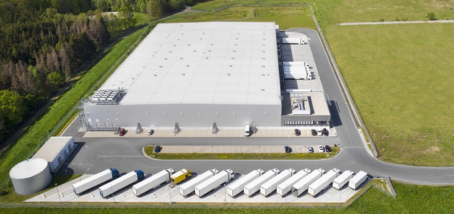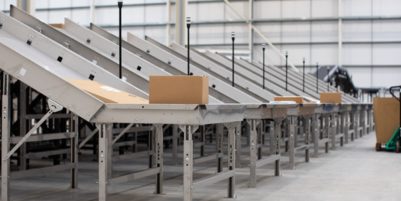-
BLACKOUT TECHNOLOGIES TARGETS TELEMATICS-INTEGRATED MOBILE DEVICE BLOCKING TO COMBAT SMARTPHONE DISTRACTION - April 1, 2025
-
OpenADR Alliance announces first OpenADR 3.0 certified products with EVoke Systems, E.ON Energy and Universal Devices - March 25, 2025
-
Growing fulfilment and contract packer appoints new Managing Director - March 25, 2025
-
When is it time to invest in a WMS? Understanding the key trigger points - March 25, 2025
-
eCapital helps Vantage Recruitment on its journey to financial success - March 24, 2025
-
Hugo Beck Celebrates 70 Years of Packaging Innovation with Open House Events - March 20, 2025
-
PROLOG FULFILMENT SUPPORTS LUNA DAILY’S COMMITMENT TO BETTER BODY CARE FOR ALL WOMEN - March 19, 2025
-
Motion Ventures launches largest-ever maritime tech fund at $100M to meet the industry’s new pace of adoption - March 18, 2025
-
ITD GLOBAL APPOINTS GROUP CHIEF REVENUE OFFICER - March 17, 2025
-
SURECAM TEAMS UP WITH ENTERPRISE FLEX-E-RENT FOR VEHICLE REPAIR & MAINTENANCE CONFERENCE - March 14, 2025
E-tailers (online retailers) and their customers facing increasing costs because of sustainability and supply and demand issues
-According to global real estate advisor, Colliers International’s latest insights –
Research, undertaken by Colliers International, of over 240 occupiers, landlords and real estate professionals with an estimated real estate asset value under management in excess of $900 billion, has revealed that 76 per cent believe the COVID-19 pandemic has accelerated customers being affected by higher prices for their home deliveries in the future.
Changes will be driven by sustainability, supply and demand as well as logistic chain factors and experts warn consumers must be willing to share the added costs with retailers if both are to benefit. However, according to Colliers, this is not expected to occur in the near-term as retailers are currently in the midst of battling to defend their market share pre-COVID-19 with their prime focus on sales.
Len Rosso, Head of Industrial and Logistics at Colliers International commented: “There is currently a balancing act for retailers and logistics operators between increasing costs, meeting customer expectations and environmental issues which will become more pressurised as the number of people shopping online increases.
“There is no denying that COVID-19 has accelerated consumer preference for e-tailing, both from a convenience and safety perspective. By the end of May 2020, we had witnessed the strongest ever growth in ecommerce sales*, with almost a third of all purchases made online (32.8 per cent) as companies and consumers adapted to coping in this challenging social and economic environment. As a result, the pandemic has emphasised the importance of logistics as the backbone of our economy and occupiers will have to further embrace consumers changing preferences.
“Yet, while the logistics sector has experienced increasing home delivery demands, the industry is not immune to the economic fallout stemming from the pandemic. This includes increasing shipping costs as a result of the UK Government’s pledge to become carbon neutral by 2050.This will translate into increasing costs related to the adoption of cleaner technologies. which could will be passed on to the customer.
“In addition, retailers are struggling with cashflow issues and strong competition from the largest online retailer, Amazon. How are others able to compete when one company has managed to reach extraordinary levels of efficiency throughout their global supply chain and can offer cheap next day deliveries all year round? In order to survive, some retailers will need to increase their delivery costs or find the cash to reach similar levels of efficiency.”
The survey also lookedto establish whether there was enough warehouse and logistics development land to accommodate the future expected growth of last mile deliveries in the UK and the results revealed that 89 per cent of respondents did not believe that there was.
Andrea Ferranti, Head of Industrial and Logistics Research at Colliers International added: “Customers still do not have the same levels of confidence in visiting physical stores and with people working from home, they are less likely to venture out shopping in person, which is putting further pressures on last mile deliveries. While we expect some customers to gravitate back to their old habits and start visiting high street stores, once we are back to some sort of normality, we anticipate this step change will still keep the online share of total retail sales somewhere around 25 per cent in the near-term.
“Finding the right warehouse stock in the right location is one of the biggest challenges for occupiers, particularly nowadays as season peaks are becoming more unpredictable. This supply and demand issue, coupled with spiralling delivery costs and sustainability pressures will undoubtedly have a domino effect, increasing the cost of items for the end-user: the customer. The million dollar question that remains is whether the consumer be willing to pay extra for their home deliveries?”
































